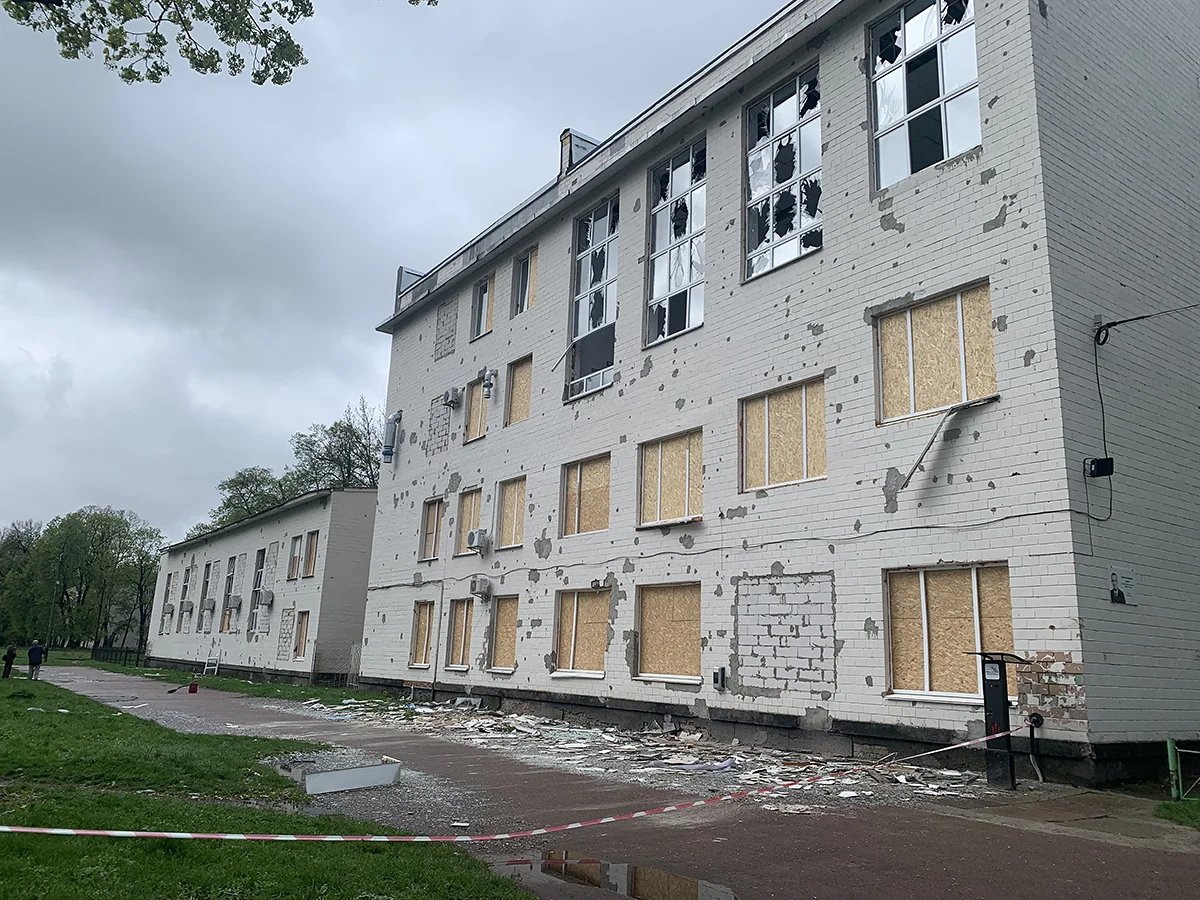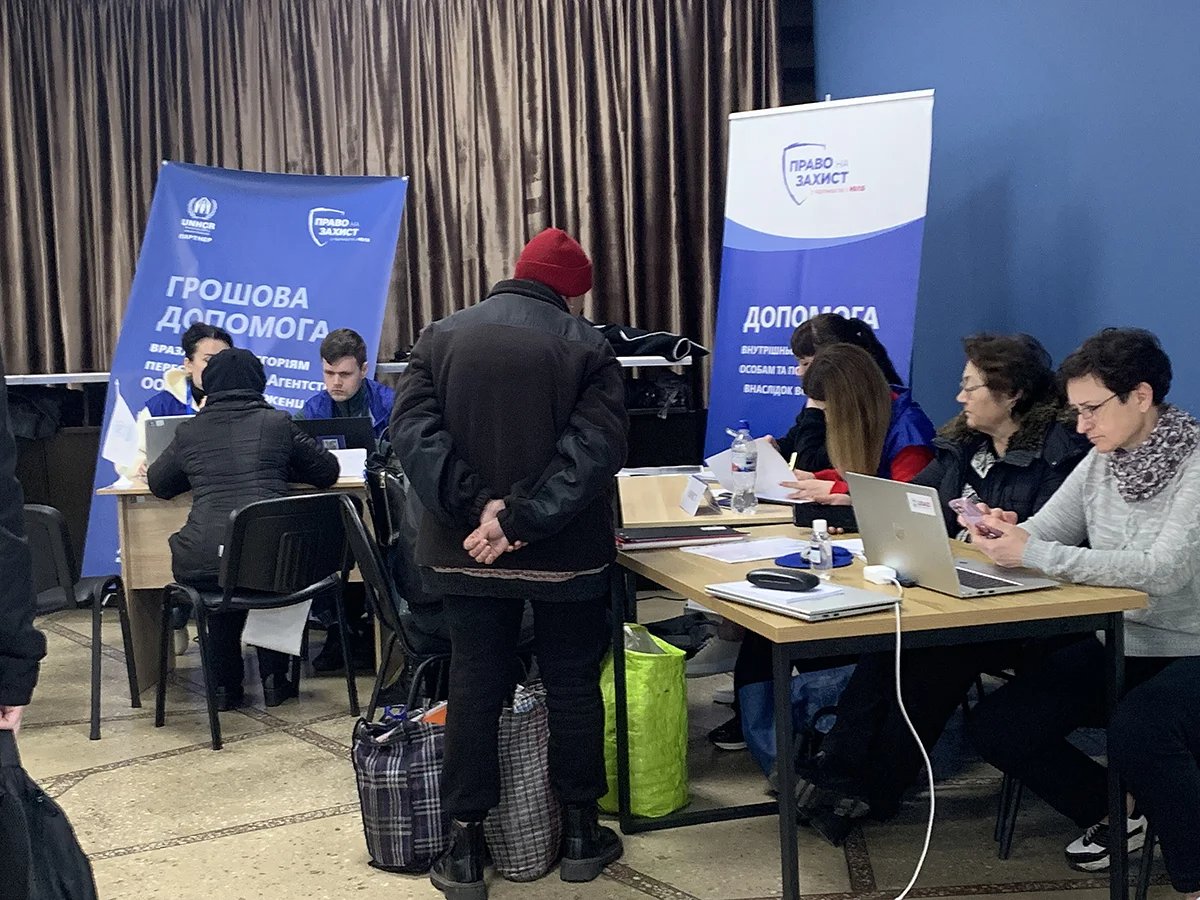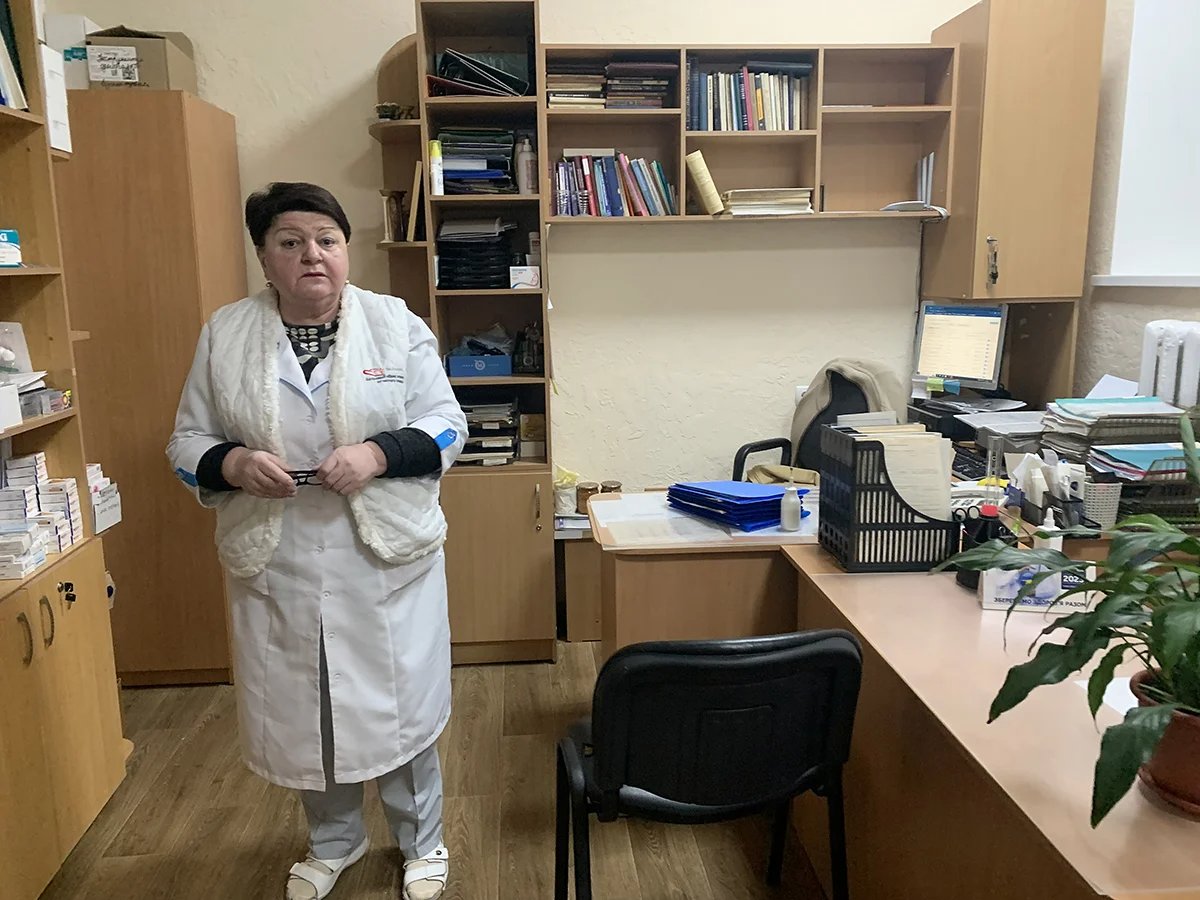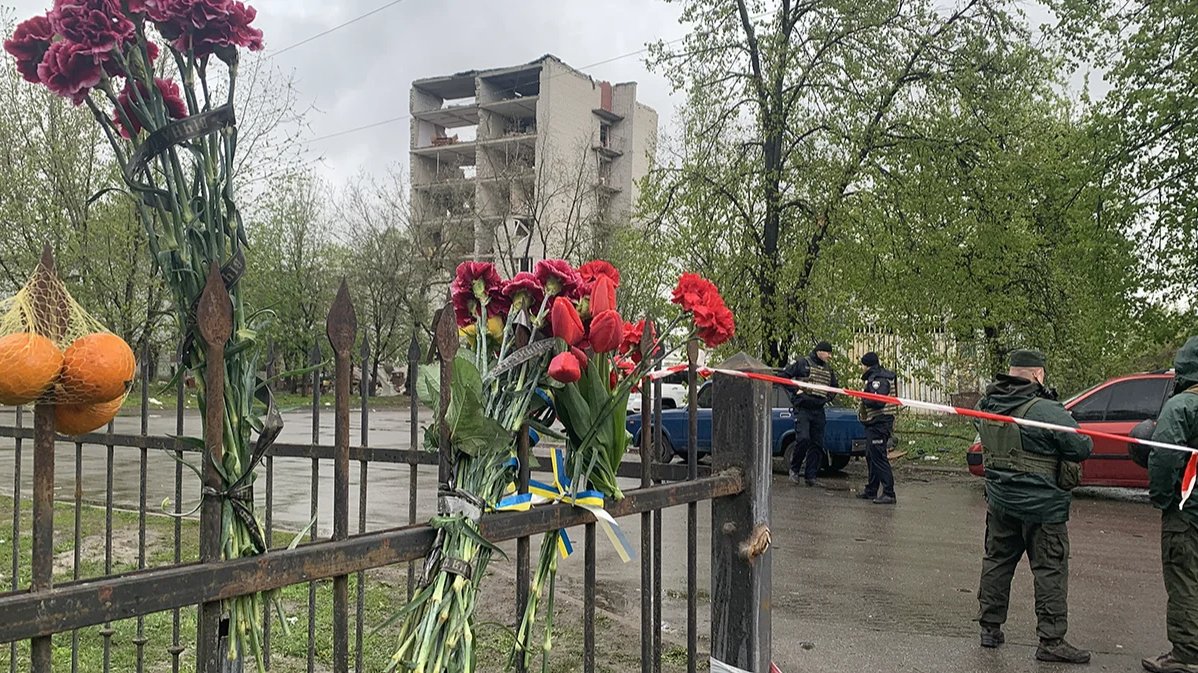Chernihiv, a city in northern Ukraine that heroically withstood a Russian siege in the first months of the invasion, came under a devastating attack last month that killed 18 people and injured at least 70. Novaya Gazeta Europe’s Kyiv correspondent Olga Musafirova visited the city and spoke to local residents in the aftermath of the strike.
Eighteen people killed. More than 70 others wounded, many of them seriously, and taken to nearby hospitals. Among the wounded, four children, who, fortunately — if one can speak of good fortune in situations like these — survived. Three of them have already been sent home, to apartments they may not recognise: glass strewn across floors, metal balconies mangled, doors wrenched from their hinges.
The children have been advised to seek psychotherapy. But how much can a psychologist really help when air raids continue to howl day and night, each one announcing the threat of another possibly fatal blow?
What can really help Chernihiv is the same thing that will help dozens of other Ukrainian cities: Patriot air defence systems. Ukrainian President Volodymyr Zelensky estimated in an online speech to NATO defence ministers in April that at least 25 air defence systems like the Patriot would be needed to “fully protect” Ukraine’s airspace.
Until then, tragedies like the attack on Chernihiv will continue. Three days after the attack, when I arrived, the victims had been buried and repairs on buildings were already underway. Boards had been hammered over the windows of most of the 28 houses and 500 apartments damaged by the attack. Piles of brick, concrete, slate and torn iron had been cleared away, and the last few janitors were sweeping up the debris that remained. It was very cold, and rain beat down on the memorial carnations and tulips tied to fences. At the site of a demolished hotel, explosives technicians scoured the area metre by metre.

Buildings at the Chernihiv National University of Technology were damaged in the strike. Photo: Olga Musafirova
Volunteers have set up a help centre at a local community venue. There, people who have lost their housing or suffered material damage are registered, interviewed and referred to representatives from international aid organisations which offer monetary assistance, legal advice, and food packages, among other services.
Queues for these kinds of benefits, especially after a traumatic event, are never tranquil, but in the hour I spent in the centre, I observed not a single altercation. Kind volunteers welcomed survivors of the attack into the hall, where one worker, Olena Varavva, said they have served 200 people so far. “But this is still the beginning,” Varavva, who works at the city council’s department of international relations and investments, said.
She added that she knows “from experience” that the influx of people seeking help will increase in the coming weeks; the city set up a similar help point last August after a Russian missile exploded in a theatre in the centre of Chernihiv. That attack killed seven civilians and injured more than 200, including 15 children.

Chernihiv residents at the help centre. Photo: Olga Musafirova
The missile hit directly across the street from the city’s central district hospital. Although the hospital itself suffered some damage from the strike, it still admitted and treated all the injured victims. Lidia Lavrik, head of the hospital’s obstetrics and gynaecology department, told me this wasn’t the first time that the hospital had found itself in the crossfire; in March 2022, as Russian troops besieged the city, bombs fell continuously all around the hospital.
Lavrik led me down the hospital corridor, showing the rooms on both sides. She said on 17 April, the day of the attack, there were 30 patients in the obstetrics and gynaecology ward, including a woman in labour. The staff barely had time to get all the patients into the corridor before the attack, she said. “Thank God nobody hesitated. Everyone was safe.” After the attack, patients in stable conditions were sent home, Lavrik said, where their doctors consulted them by telephone.

Lidia Lavrik, head of the hospital’s obstetrics and gynaecology department. Photo: Olga Musafirova
Not a single window in the hospital remained intact; shattered glass and fragments of window blinds littered the beds and the small operating rooms. Plaster fell in huge chunks from the ceilings, and long cracks crept down the walls.
But Lavrik told me that things initially looked even worse; mere minutes after the attack, volunteers and employees of the regional council rushed in with cleaning equipment.
By evening, the windows were covered with plastic film and wood panels. “Order was restored,” Lavrik said. “We persevere.”
Most volunteers in Chernihiv are entrepreneurs, explained Irina Timofeyeva, who is the head of an herbal pharmacy in the city. She said other entrepreneur-volunteers might, for instance, be heads of coffee shop franchises, who “earn money in order to donate it.”
“None of us ran away,” Timofeyeva said. “It’s our country, our city.”
She recalled watching Mstyslav Chernov and Evgeniy Maloletka’s film 20 Days in Mariupol, which took her breath away. In 2022, Timofeyeva said, the cities of Chernihiv and Mariupol were like “twin brothers”.
She said that the residents of Chernihiv resisted the enemy onslaught with the same desperate dedication that the Azov Brigade showed in their defence of Mariupol. Timofeyeva believes that the Russian authorities, remembering this effort, bear a special grudge against the city, and this is why they continue to batter it with missiles.
*
Repair continues on the theatre that missiles destroyed in August; employees from a construction company were at work on the building’s new roof when I saw a white-branded car from the International Medical Corps stop near the theatre. A grey-haired man began filming a panoramic video of the square, its historical buildings crippled by explosions and bandaged by plywood boards. “Oh my god,” he kept saying, glancing at the sky — not in prayer, it seemed, but possibly in the knowledge, shared now by everyone in Chernihiv, that it can be a matter of minutes between the first air raid sirens and the moment the missile strikes.
Join us in rebuilding Novaya Gazeta Europe
The Russian government has banned independent media. We were forced to leave our country in order to keep doing our job, telling our readers about what is going on Russia, Ukraine and Europe.
We will continue fighting against warfare and dictatorship. We believe that freedom of speech is the most efficient antidote against tyranny. Support us financially to help us fight for peace and freedom.
By clicking the Support button, you agree to the processing of your personal data.
To cancel a regular donation, please write to [email protected]

